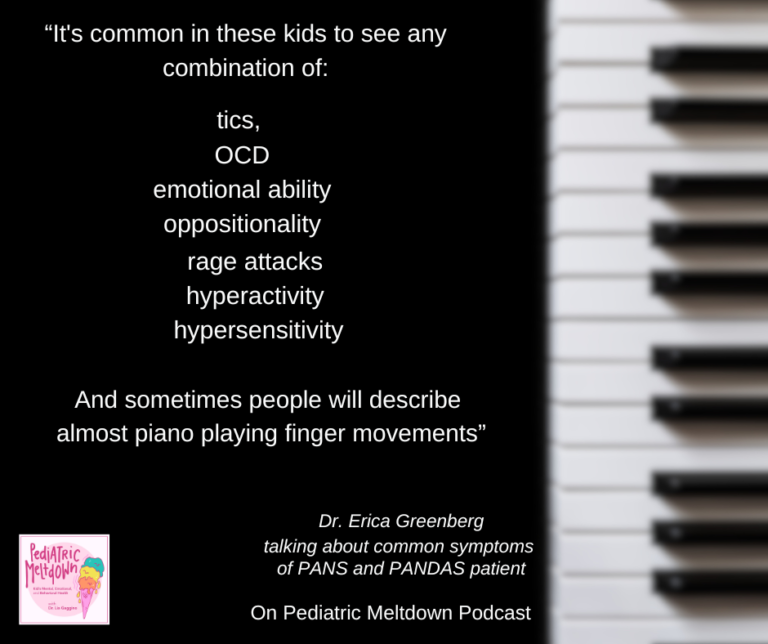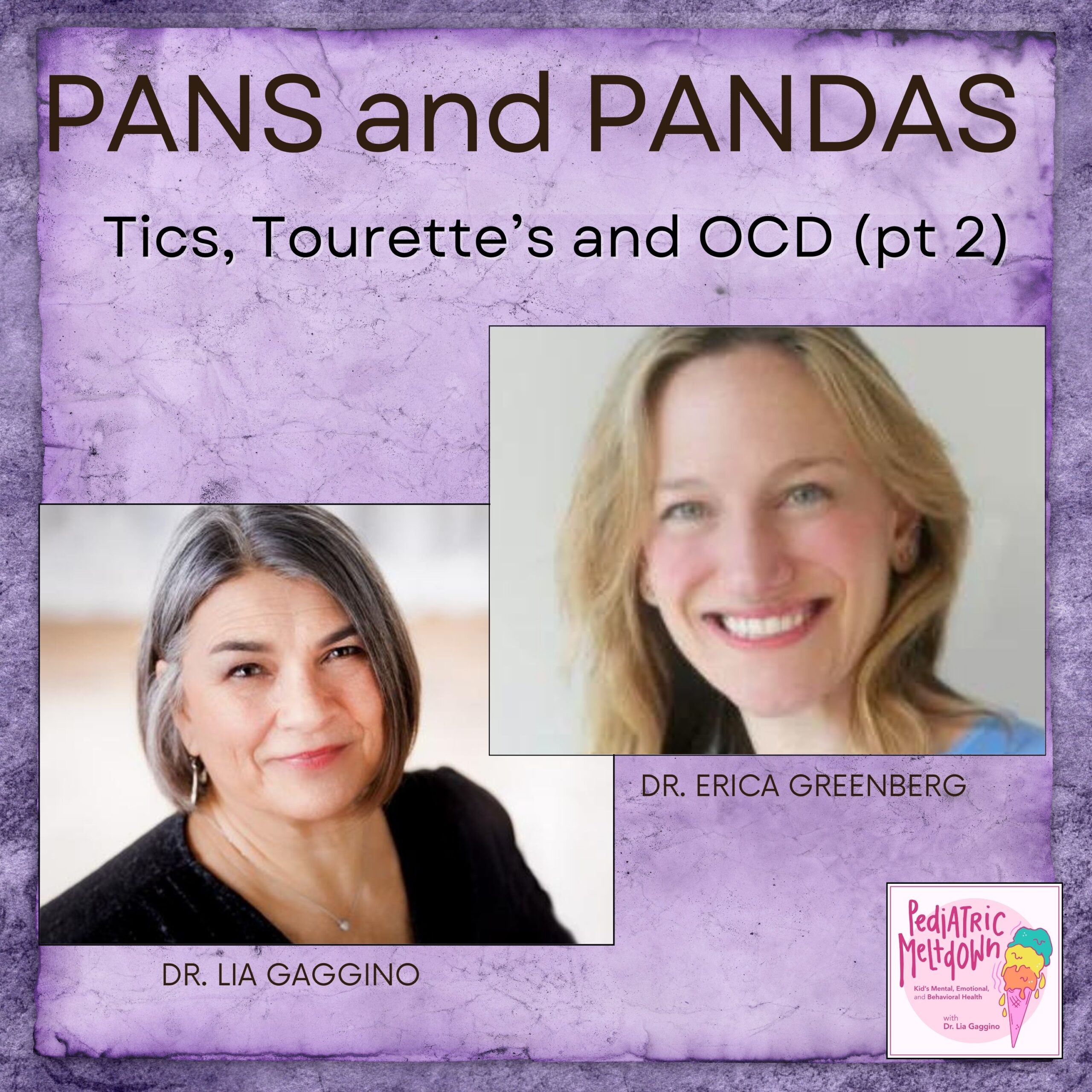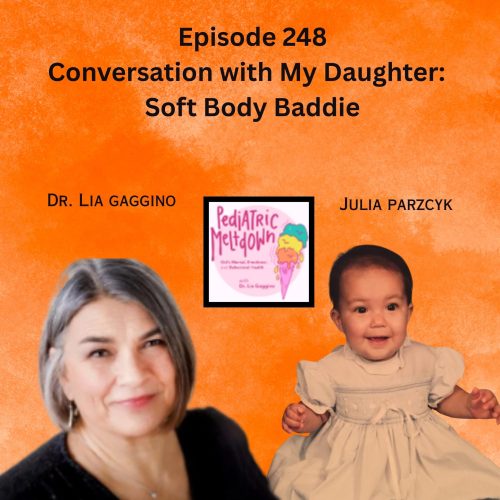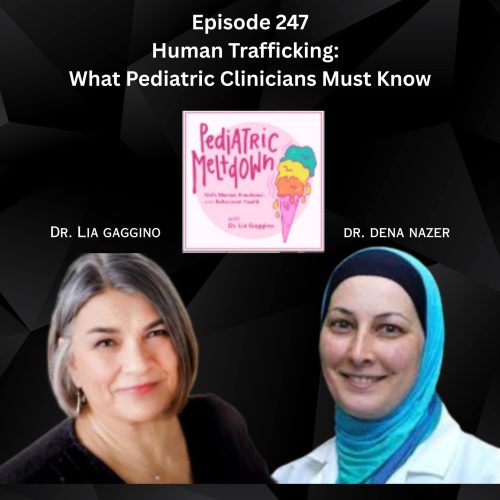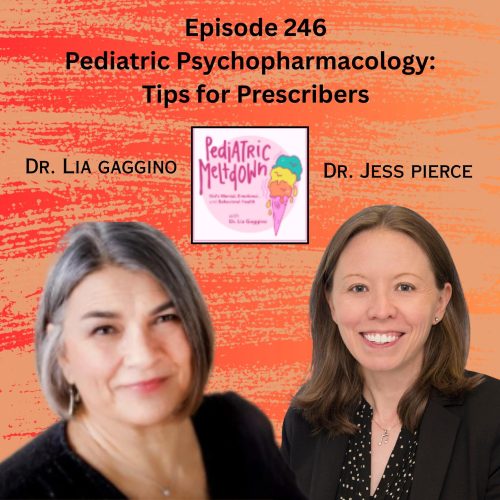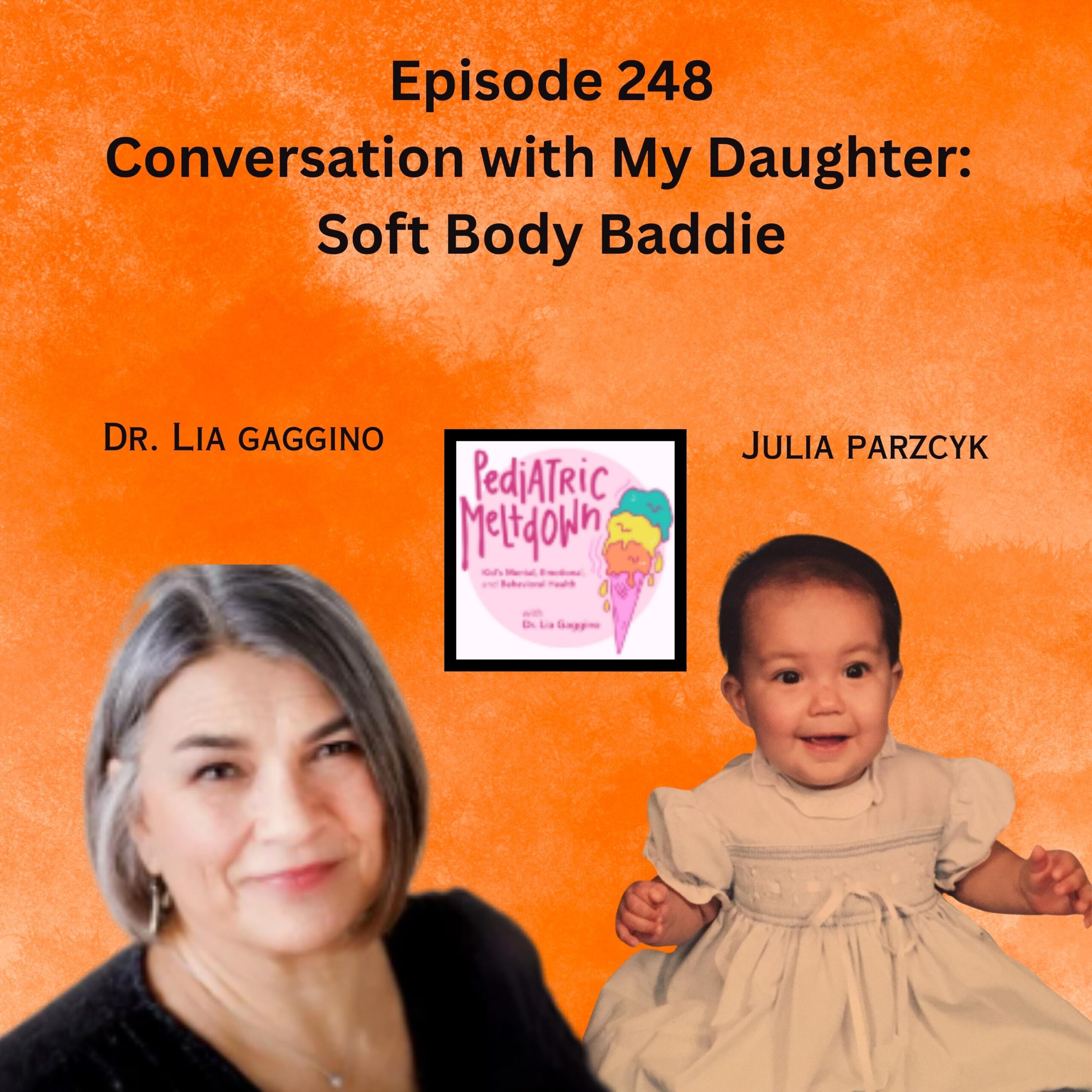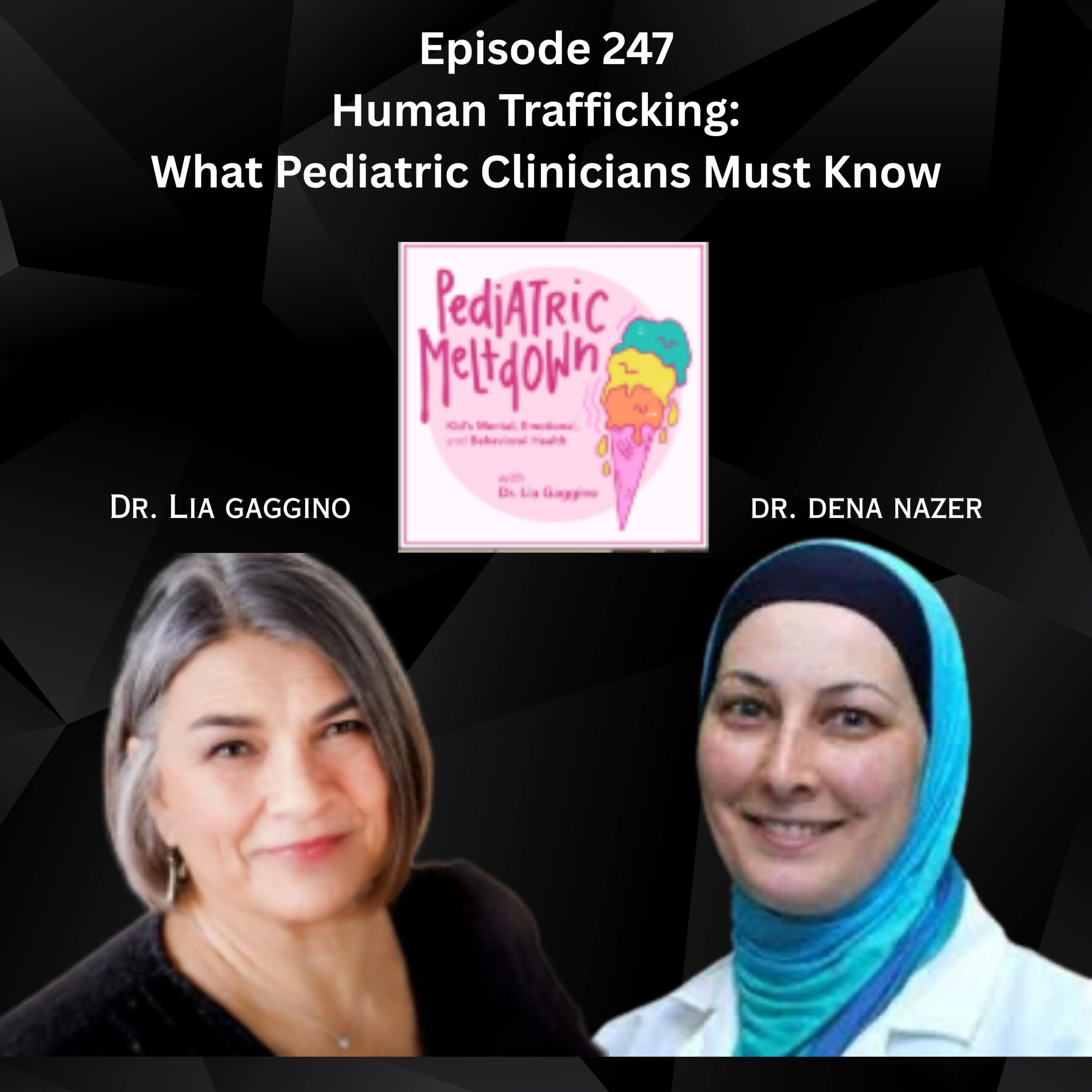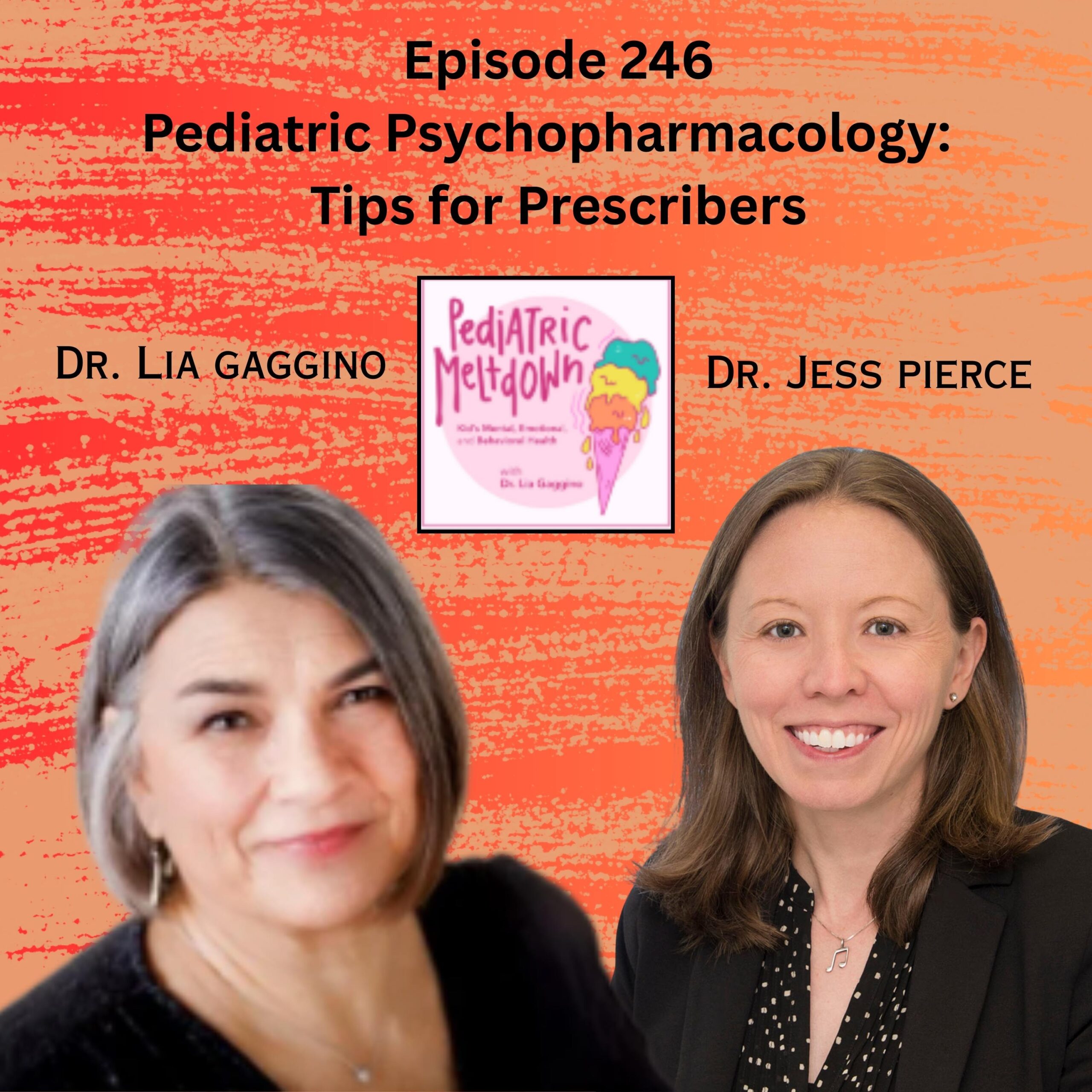PANS and PANDAS
In this second part of a 2-part series from last week’s show, host Dr. Lia talks with Dr. Erica Greenberg about some of the surprising research looking at the association between autoimmune and inflammatory conditions and higher rates of OCD. Dr. Greenberg discusses the neuroscience around OCD from genetic to environmental factors, and the puzzling overlap of symptoms in disorders like Tourette’s and OCD. She stresses the crucial need for interdisciplinary research to shed further light on these intricate associations.
You’ll get insights into why certain treatments are recommended with caution and why controversy still remains around PANDAS and the desperate need for collaboration and comprehensive research to truly understand these complex conditions.
You’ll also hear about the role of stress-induced inflammatory responses and how they render some individuals more susceptible to immune-related dysfunctions, shedding light on the significant impact of environmental factors like lead exposure on basal ganglia circuitry. Dr. Lia’s conversation with Dr. Greenberg reveals the interconnected nature of disorders such as OCD, Tourette syndrome, and other neuropsychiatric ailments, underscoring the necessity for further research.
Conversations like these illuminate the path forward, emphasizing that the key to understanding and treating these conditions lies in collaborative research efforts across various disciplines.
[01:46 -12:40] Understanding PANDAS and PANS Origins and Symptoms
- PANDAS is specifically linked to post-infectious streptococcal etiology.
- PANDAS involves the sudden onset of tics and/or OCD.
- PANS shares a similar characteristic of sudden, rapid onset of a complex of symptoms.
- Importance of understanding the specific triggers and symptoms associated with both PANDAS and PANS.
[12:41 – 23:32] Understanding the Clinical Outcomes of PANS/PANDAS Treatment
- Sudden onset of symptoms such as tics, OCD, and separation anxiety is notable in these conditions.
- Some children experience complete recovery back to baseline after antibiotic treatment within a week.
- There is ongoing research into the different potential clinical courses following a PANS/PANDAS diagnosis.
- Emphasis on the importance of recognizing and understanding the diverse range of clinical outcomes.
[23:33 – 35:37] Genetic and Environmental Influences on OCD and Tourette Syndrome
- Studies show significant associations between OCD, Tourette syndrome, and increased rates of throat infections.
- Research indicates higher odds ratios of developing OCD and Tourette in youth with infection histories.
- A dose-response relationship exists between strep infections and OCD/Tourette symptom severity.
- Studies find higher rates of autoimmune disorders in individuals with OCD and Tourette and their family members.
[35:38 – 48:00] Key Information and Challenges Surrounding PANS and PANDAS
- Need for more thoughtful, nuanced, safe, appropriate information for parents.
- There’s evidence that PANS and PANDAS have a more negative impact on families compared to typical OCD
- OCD and Tourette syndrome develop slowly, while PANS and PANDAS show abrupt changes.
- Families face significant trauma, especially when providers dismiss their concerns.
[48:01 – 55:17] Closing segment Takeaways
Links to resources mentioned on the show
Erica Greenberg, MD PANDA AND PANS Presentation Swipe Files
Treatment of PANDAS and PANS: a systematic review
https://drive.google.com/file/d/1mpi3BSX2qQ-zHFpX9a5yNMUWDHkyC7hU/view?usp=sharing
Specialty knowledge and competency standards for pharmacotherapy for
adult obsessive-compulsive disorder
https://drive.google.com/file/d/1AExt8PTbVbwBYXgWqxwI_bcW8T04yA62/view?usp=sharing
JAP Treatment Guidelines
JCAP Treatment Guidelines – Part I–Psychiatric and Behavioral Interventions https://drive.google.com/file/d/15fgJGFDZ-tf8wmbgAihXoIU6OGR1oyB8/view?usp=sharing
JCAP Treatment Guidelines – Part II–Use of Immunomodulatory Therapies
https://drive.google.com/file/d/1NT0RLn4xp1nT7h0_n5u4MyGcTDcaXW_2/view?usp=sharing
JCAP Treatment Guidelines – Part III–Treatment and Prevention of Infections
https://drive.google.com/file/d/1DGUxCxkol8LFdKyzAYRNHIeVhO1RMqzp/view?usp=sharing
Quote from Christopher Pittenger, MD, Ph.D.
“The nature of this immune dysregulation, whether it exists in all patients or in a subset, whether it is causally associated with disease onset or progression, and whether it is a specific cause of disease, a nonspecific exacerbating factor, or an epiphenomenal, consequence of other pathophysiological events remain unclear”.
Other episodes you may like:
https://pediatricmeltdown.com/episodes
- Tics, Tourette’s and OCD
- Explosive Outbursts in Kids: Guide to Diagnosis and Treatment
- ADHD: Strategies for Boosting Executive Function
Building Better Workflows Podcast
Key quotes for Twitter:
“If in the setting of a traumatic event, if one has an inflammatory response, we know that stress does that, and these kids may be more vulnerable to immune related dysfunction in the setting of stress responses.”… Dr. Erica Greenberg on the link between trauma and OCD
“And I think when you think that a child’s disruptive behavior is because they’re trying to manipulate you, you immediately stop being curious and you feel punitive.”…. Dr. Erica Greenberg on Understanding PANDAS/PANS Diagnosis
**Transcript of Episode Available upon request**
THANK YOU FOR YOUR SUPPORT!
Pediatric Meltdown was listed as a Top 20 Pediatric Podcast on FeedSpot.
If you’d like to connect with me, you can Tap the “What Are Your Thoughts” button at the top of the notes or you can find me on LinkedIn, Facebook, Instagram, and Twitter, or email me at gagginol@gmail.com. To learn more about me visit https://www.pediatricmeltdown.com/ or reach out, DM me on IG, FB or LI and if you’d like to chat set up a discovery call to talk about your needs and challenges: https://calendly.com/gagginol/discovery-call
